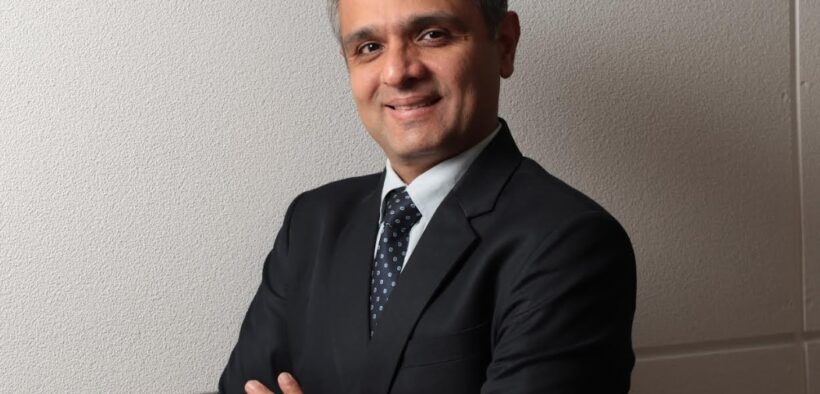Why questioning is the ultimate learning skill for PhD Students
Share

A scientific breakthrough, a cultural revolution, a spark of innovation, they all have their genesis in a question. The art of questioning is like a compass, offering us clear directions on our path of inquiry. While this makes questioning a critical human skill, it is especially a core learning skill for PhD students.
Currently, only a little more than 50% of PhD students in India are able to complete their programmes successfully. Given the nature of the academic pursuit – steeped in extensive research followed by unbiased, well-questioned analysis – PhD students must not just uphold a culture of inquiry but also internalise critical questioning skills. This is the key to accessing authentic answers, especially when conducting primary research, which may involve discussing complex or sensitive subjects with respondents.
Intelligent, perceptive questioning is also vital to secondary research, followed by analysis – defining what information makes it to the consideration set and the narrative to which it is aligned. At a fundamental level, it is this quest for answers that impacts the ‘Six Cs of Success’ – communication, confidence, collaboration, curiosity, competence, and creativity.
Developing strong questioning skills should be part of the curriculum for PhD programmes. Meanwhile, aspiring students must take it upon themselves to invest in structured learning opportunities that hone their questioning skills in a well-placed manner. This is key to getting the maximum out of their research and earning credibility and recognition in the fraternity.
Mastering effective questioning skills
Based on my personal experiences while pursuing a PhD in business and leadership communication as well as my professional experience of working with PhD aspirants and scholars, here are the top questioning skills to hone:
- Communication
Often, the biggest challenge PhD students face when posing questions is knowing how to put them across. Right from empathetic body language to the inclusion of terms that are familiar to respondents, there are several aspects that students need to consider and learn. These can significantly transform how primary research respondents perceive and respond to the questions.
- Interpersonal skills
Despite an increasingly digital-led environment, with minimum human interaction, it is important that PhD students do not miss out on strong interpersonal skills. Such skills help grasp subtle nuances that impact students’ ability to understand and collaborate effectively. They also ensure that students are able to clearly express their explorations and findings. Interacting with people to collect samples is a great example of how interpersonal skills can be crucial for PhD students. When collecting data, students may need to communicate with participants, interviewees, or other stakeholders to obtain accurate and comprehensive information. This requires effective communication skills, including active listening, clear articulation, and the ability to ask relevant and insightful questions. Developing these skills can help PhD students to collect high-quality data that is relevant to their research questions.
- The performance advantage
Effective questioning skills have a direct impact on both the student’s ability to clear PhD entrance tests as well as the chances of them submitting a dissertation that culminates into a doctoral degree. Here are three distinct areas where PhD students benefit from mastering questioning skills:
- Enhanced eligibility
Effective questioning skills such as critical thinking can help PhD applicants clear entrance tests more easily. Academicians have been vocal in expressing the need for more comprehensive and subjective test formats. They believe it can help evaluate an applicant’s mettle for deeper, unbiased questioning and logical thinking and bridge the gap between eligibility, admission, and successful programme completion.
- Articulation prowess
A key contributor which keeps PhD students from successfully earning their doctoral degree is an unconvincing dissertation presentation. Effective questioning skills, when practised over a period of time, can help students develop a thinking and narrating style that is far more articulate. This can significantly transform a student’s ability to deliver powerful presentations.
- Improved writing
The same effective questioning-thinking-expressing style also has a discernible positive impact on how PhD students write their dissertations. By asking pertinent questions – like ‘How can I establish a clear context for basing my hypothesis?’ or ‘How can I slice my data findings for immediate visual clarity?’ – students can be far more effective in their writing.
In conclusion, questioning is an indispensable learning skill for PhD students, as it enables them to approach their research with curiosity, creativity, and critical thinking. The ability to ask insightful and thought-provoking questions allows PhD students to identify gaps in existing research, develop new hypotheses, and challenge assumptions. Moreover, questioning helps PhD students to evaluate the validity and reliability of their research, refine their methods and approaches, and engage with a wide range of perspectives and disciplines.
Despite the increasing digitisation of the academic world, it is important for PhD students to cultivate strong interpersonal skills, such as effective communication, relationship-building, and constructive dialogue. These skills also prepare them for a successful academic career, as they enable effective communication, collaboration, and engagement with colleagues and mentors, as well as the ability to navigate the challenges and opportunities of the academic world with confidence and success.
(The author is the Founder and CEO of the School of Meaningful Experiences (SoME)







